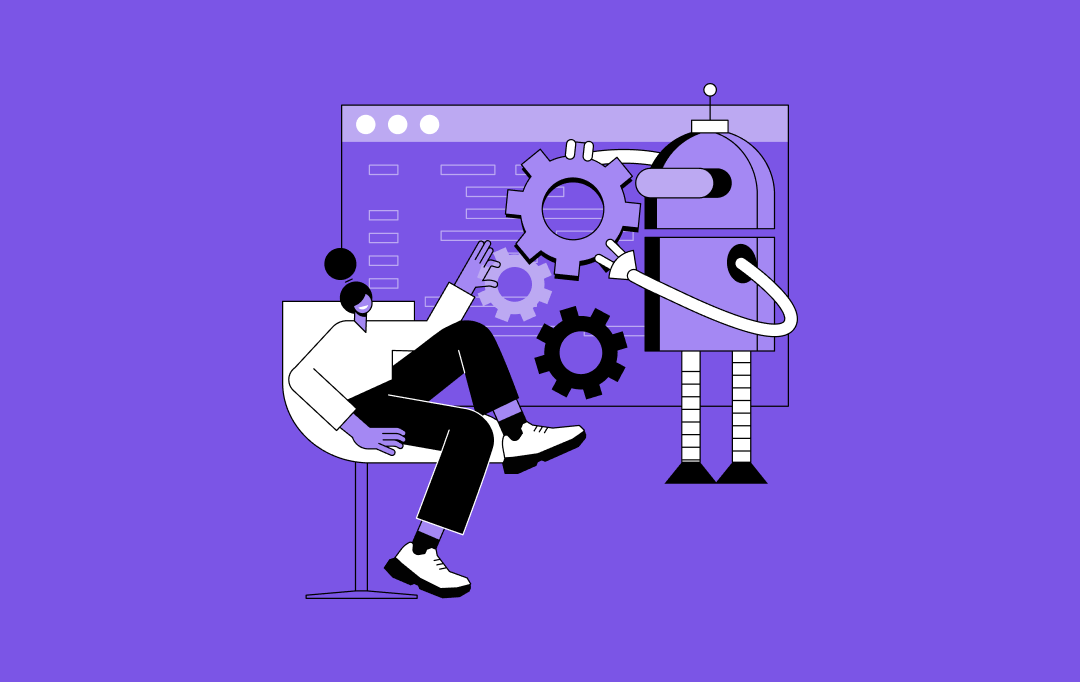
Building HRMS Software in Dubai: A Complete Guide for 2024
HRMS systems revolutionize human resource management by automating and integrating core HR functions. The global HR software market is projected to reach $44.28 billion by 2031, growing at 10.10% CAGR from $20.51 billion in 2024.

Person and robot with mechanical gears
HRMS centralizes employee data, automates tasks, and enables self-service capabilities through:
- Unified data management
- Task automation
- Employee self-service portals
- Analytics and reporting
- Compliance tracking
- Performance management
Key benefits include:
- Streamlined recruitment
- Accurate payroll processing
- Real-time performance tracking
- Data-driven decision making
- Enhanced compliance
- Scalable HR processes
Major companies leveraging HRMS:
- Walmart: Global workforce management
- Google: Talent acquisition and development
- Mayo Clinic: Healthcare staff management
- General Motors: Manufacturing operations
Essential features for modern HRMS:
- Employee information management
- Recruitment and onboarding
- Attendance tracking
- Performance evaluation
- Payroll administration
- Compliance reporting
- Training management
- Self-service portals
- Analytics
Development costs typically range from $40,000-$300,000 depending on:
- Design complexity
- Backend requirements
- Third-party integrations
- Security measures
- Compliance needs
- Platform selection
- Feature set
Emerging trends:
- AI-powered analytics
- Hyper-personalization
- IoT integration
- Blockchain verification
- DEI metrics
- Chatbot automation
Key implementation challenges:
- Regulatory compliance
- System integration
- Data security
- Cost management
- Customization needs
When building HRMS in Dubai, partner with experienced developers who understand local requirements and can deliver scalable, compliant solutions tailored to your organization's needs.
Related Articles

Web 3.0 vs Web 2.0: Key Differences and Business Impact in 2024

